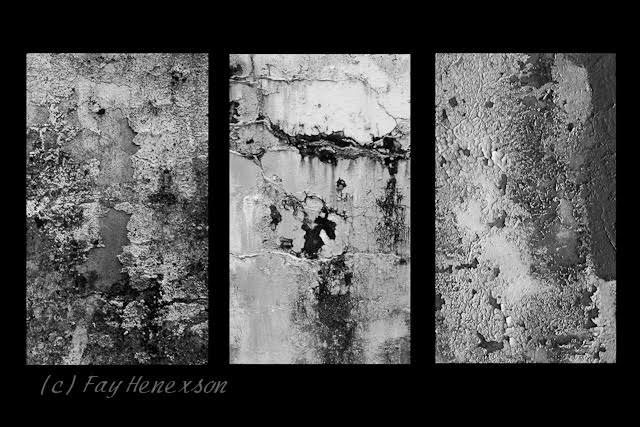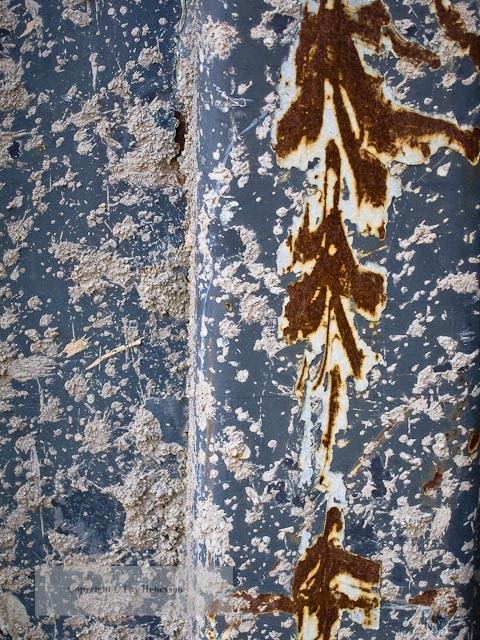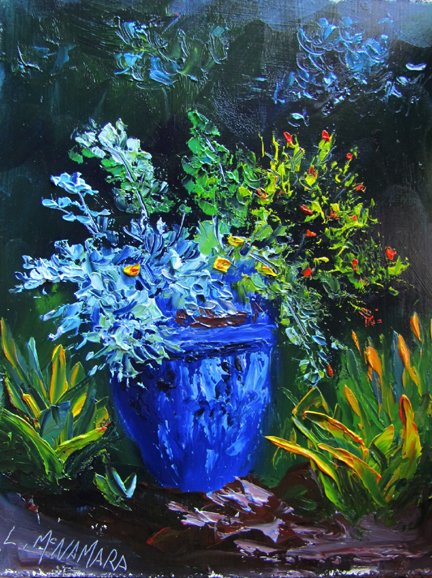
“Pink Lily Lagoon” by Lori McNamara, 2011, oil on masonite
1967: “The Summer of Love.” It was a great time to be in San Francisco and Haight-Ashbury, smoking pot and dropping acid. But not an ideal time to be a first-year medical student in an inner-city Detroit hospital.
Location, location, location.
For five days in July 1967, Detroit burned. Forty-two civilians were killed. It was the Detroit Riot or Civilian Rebellion from Oppression, depending on your viewpoint. They brought the dead and injured into the emergency room. I saw firsthand what a fifty- caliber bullet could do to a child. Black orderlies and white nurses and white surgical residents gently, but rapidly, placed a five-year-old girl on an operating room gurney.
I heard, “She’s still breathing.”
Her hair was braided in pigtails, held in place with pink ribbons.
It was a psychedelic mix of sights, sounds, and smells.
The lights were bright and illuminated the carnage. No shadows. Nothing left to the imagination. The entourage raced out of the emergency room. The custodians followed behind, mopping the floor. An impression of her body remained on the steel stretcher. It was like a photographic negative made in blood. I was ordered to clean the stretcher. As I did, the girl’s silhouette disappeared.
Finished, I went to the lavatory and vomited.
~
In medicine we can be witness to some beautiful miracles. Childbirth always restores me. Witnessing a sick child’s fever break and health return brings professional salvation and affirmation.
But my experience in the emergency room won’t be expunged. Perhaps a neurosurgeon could remove that section of my brain that remembers. There is no debriefing in the medical profession. We are instructed to “hike them up.” Remain silent. It often works. Time is the second-best healer.
With all the women in medicine now, there must be a new expression. But the sentiment remains.
The emergency room experience was harrowing. I had to talk to somebody. I couldn’t talk to my fellow competitive classmates. Medical colleagues didn’t reveal weakness. Angst was managed with silence. Perhaps it is different now.
At age twenty-one, I reflexively turned to those with whom I shared a filial history, a strong genetic and DNA bond. I would try to reach them once again for our mutual benefit. The DNA bond was weakening, but I had to try again. It would probably be pointless; the more education I obtained, the more estranged I became. My academic accomplishments were like a wall. I was learning so much. I was learning to diagnose. I would be able to save lives. In retrospect, my enthusiasm was focused, but intimidating and threatening. I was obsessed.
My studies led me to the family secret, the hereditary curse that doomed my ancestors. At that time it was called manic-depressive illness. It was obvious. I believed it was my duty to tell them, help them. I tried once to enlighten them. I hoped they would be receptive.
My father loved it when I played football or boxed in the Detroit Golden Gloves. He basked in my glory. But once I got into medical school, there was a distance. He seemed afraid of me. My mother too. She held her breath as I talked about my studies and the things I learned. I’m sure they realized I would come to the inevitable conclusion. I would diagnose and explain why so many of our ancestors ended their days in insane asylums or prisons or as homicides or suicides. I wanted to enlighten them and educate them, get those in the family who were affected help. Help before something bad happened.
But now I needed their help. I had to talk to them.
I drove to my childhood home, which was a two-bedroom red-brick bungalow built after World War Two. My brother, sister, and parents still lived there. I looked through the big picture window. My parents sat in front of a large color television, watching Bonanza. Ben Cartwright lectured his middle-aged sons while Hop Sing waited on them.
I entered. They looked away from the glow of the television.
“Well, who’s this?” my father asked. “Too busy to see your mom and dad? Without us there would be no you.”
My mother stood. My father remained seated. “It’s good to see you, son,” my mother said. I kissed her on the cheek.
“Get your son and me a Blue Ribbon, some crackers and Velveeta.”
My mother went to the kitchen. I felt sorry for her. She was a good person but weak and lived in fear. Fear from a volatile husband who could go from paralyzing depression to a high-pressured manic zealot. During his mania he could be very funny, buying us gifts he couldn’t afford. He would entertain us with unbounded energy. He could also get rough. I grabbed my father’s arm once, when still in high school, and told him, “No. Never again.” I was his physical superior, and he was afraid of me.
I warned him about hurting any of us in the family, especially my mother. My father became an expert at psychological abuse. It left no physical marks. I asked her to divorce him. She was too afraid, and she said she didn’t want to hurt the children.
“We’re not children anymore.”
“You’ll always be my children.”
“I know, and you must protect the one with the broken wing.”
“Yes.”
She returned with the beer and snacks. “Son, what brings you here?”
I did not know how to start. I sipped the beer. “Mom, Dad, I’m seeing things in the hospital, things that upset me.”
My father rolled his eyes. Played an imaginary violin. It was what I expected. I should have left before things got worse.
My father sipped. “Beer’s not cold enough, Sue, put a few bottles in the deep freeze.”
She left to put the beer in the freezer.
“Son, when I was in the marines, there were things that were upsetting.”
“But you got in at the end of the war. You didn’t see action.”
“True, but I talked to guys who saw all sorts of things, and I saw pictures.”
I hesitated, then I told him, “I saw a young girl die.”
“How old?”
“Five years old.”
“Well it beats seeing a baby die. You ever seen that?”
“No, not yet.”
“Well,” my father said. “I saw pictures from the war.”
“What a horrible thought,” my mother said.
“I saw your sister almost die when she cut her wrists on a glass jar. It was a bad accident.”
“Dad, it was no accident. It was a suicide attempt. She needed treatment. She still does. I told you before. You can’t just keep her locked up in the house.”
“She just has headaches,” my mother said. “The light hurts her eyes. She has to stay inside, or she starts to act peculiar.”
“She has manic-depressive illness. It explains her behaviors. She’s unstable; she can’t help it,” I said.
“You think she’s crazy? Is that what you’re saying?” my father asked.
“She needs to be on medication. I told you before but you wouldn’t listen. She needs psychiatric help to undo her bizarre behavior patterns.”
They both stared at me just like before. Deer in the headlights. I could tell they didn’t get bizarre behavior patterns. I told them again about the disease; a disease that causes out-of-control emotions, anger, rage, sex drive, but short-circuits the area that allows the ability to love. The conversation ended in insults and denial. They looked at me as if I were the man from Mars speaking another language. But they knew. They didn’t know it had a name.
I changed the subject. “I’m not sure I’m cut out to be a doctor.”
“You’re not a weakling. You never backed down,” my father said. “We had such high hopes for you. You could be rich.”
My mother said, “Doctors are special people. Perhaps you don’t deserve to be a doctor.”
Her words stung. I was no longer special. I couldn’t talk. The bitterness and abuse of my father had finally leeched into my mother. She had hurt me. She’d never done that before.
“That a girl, Susie. Give him a swift kick in the ass. It’s about time.”
My mother had tears in her eyes. She knew what she did and instantly regretted it. This would be of no help. I stood. “Gotta go, thanks for the beer.”
My mother followed me out the door.
“Why don’t you leave him?”
“It would have upset you three.”
“Not me.”
“Then the other two.”
My mother walked me to my car. My sister was busily scratching the side of my car with a butcher knife. I didn’t say anything. It would be pointless now that she had entered one of her manic episodes.
“Laurel, you get away from your brother’s car. Put the knife down.”
“She can’t hurt that wreck. At least she didn’t puncture the tires this time.”
“She wants you to be able to leave.”
My sister ran toward us. I didn’t know what she would do with the knife. She waved the knife at my mother and me.
“You got into med school, but you’ll never finish.” Her voice was too loud, almost like a shout or growl. She laughed and ran into the house.
“That reminds me of those old jokes,” my father shouted. “How do you unload a truckload of dead babies? With a pitchfork. Ha.…ha…ha.”
My sister laughed as well. Her laugh was higher in pitch, but just as loud.
“I don’t know how you live with all that madness. They both have it. He passed it on to her. You have to save yourself.”
“Sometimes they’re not so bad.” My mother turned and walked into her home.
That’s all I needed. I couldn’t go back again. I knew too much. They would always be afraid of me. I decided to transfer to a medical school on the West Coast.
~
That was almost fifty years ago. In 2017 it will be fifty years since the Detroit Riot. The young girl on the stretcher would be about fifty-five had she lived. The issues then were racism, police brutality, unwanted foreign wars, and gun control. Nothing much has changed. Abortion is on the front burner again.
Naively we thought the Middle East problem was over after the Six-Day War.
Leaving Detroit was a good thing for me. I went into academic medicine. All the academic opportunity was on the coasts then, as now.
Initially I went into a psychiatry residency. I wanted to learn as much as I could about manic-depressive illness, now called bipolar disorder. It’s said that unstable physicians go into psychiatry in order to heal themselves. I don’t believe that. Unstable physicians stay as far away from psychiatry as possible. They’d be too easy to spot.
But I’ve learned enough about the disease that I can spot them. The untreated ones or the ones that go off their medication act bizarre. I saw a surgeon one time get manic, and during a surgery throw a scalpel against the wall. The scalpel ricocheted, just missed the anesthetized patient, and stuck in the surgeon’s leg.
While being sewn up, he was committed.
Unfortunately, the laws protect them. You can’t be proactive. They must do something bad. Someone must get hurt before you can intervene. I’ve seen it too many times.
The treated ones always carry water or are always at a drinking fountain. The medication, the lithium, makes them thirsty. It hurts the kidneys and they always have to pee. They chronically carry coffee because the medication makes them drowsy. I’m on alert. I’m afraid of them.
And they have a peculiar twitching at the mouth or sometimes a locked smile. The mental patient smile.
I’m not the only one with the same fear. I attended a lecture by a famous forensic psychiatrist. The lecture was titled, “Cuddle the Schizophrenic, and Fear the Bipolar.” The gist was that most violent people are not crazy, and most crazy people are not violent. But some are and psychiatry is inept at spotting the suicidal and homicidal.
This hopeless ineptitude led me to change careers in mid life. I became an anesthesiologist. I put people to sleep. I keep them safe. I control their every move while they are under. When they wake up, I’m done. I don’t have to worry if they are suicidal or homicidal.
~
I rarely went back to visit my family. I was not invited to birthdays, weddings, or holidays, but they couldn’t keep me out of the funerals. You don’t need an invitation. I never missed one. I saw them all buried. I paid for them.
Only my sister and I are left. The court got her the help she needed. She attacked her fourth husband with a hammer. Killed the dog. That husband resides in a nursing home drooling and wearing diapers.
I am one of the few physicians that smokes cigarettes, Pall Malls, unfiltered. The red pack looks regal, sophisticated. Opposite the surgeon general’s warning is the phrase “Where Particular People Congregate.” Pall Malls are hard to find. But I have a good tobacconist.
I blame the government attack on smoking as the cause of the obesity and diabetic epidemic. Smoking is a great appetite suppressant. The lives saved and the lives lost is probably a wash.
Nicotine is also a good antidepressant. It seems to me that the social ban on cigarettes caused the pharmaceutical explosion of expensive antidepressant drugs. Big tobacco’s loss is big pharma’s gain. The problem with the new antidepressants is that they unmask and unleash bipolar disorder. Add to that the lack of gun control and large clip AR-15s.
I have been spared; so have my children. But I watch for signs. So far, so good.
I sit in my library. I enjoy my Pall Malls and listen to music. I steer clear of the new antidepressants. I can’t listen to Prozac. I’ve never been adequately debriefed. But I keep myself safe: I smoke.
Olaf Kroneman has had work appear in Forge, Hawai’i Pacific Review, The Healing Muse, The Helix, inscape, Left Curve, Quiddity International Literary Journal, RiverSedge, Gemini Magazine, paperplates, and Diverse Voices Quarterly. His story, “Fight Night,” won the Winning Writers Sports Fiction and Essay Contest, and “The Recidivist,” won the Writer’s Digest short story contest. His essay “Detroit Golden Gloves” was selected as Editor’s Choice by inscape, honoring the top nonfiction piece of the issue in which it was printed.










